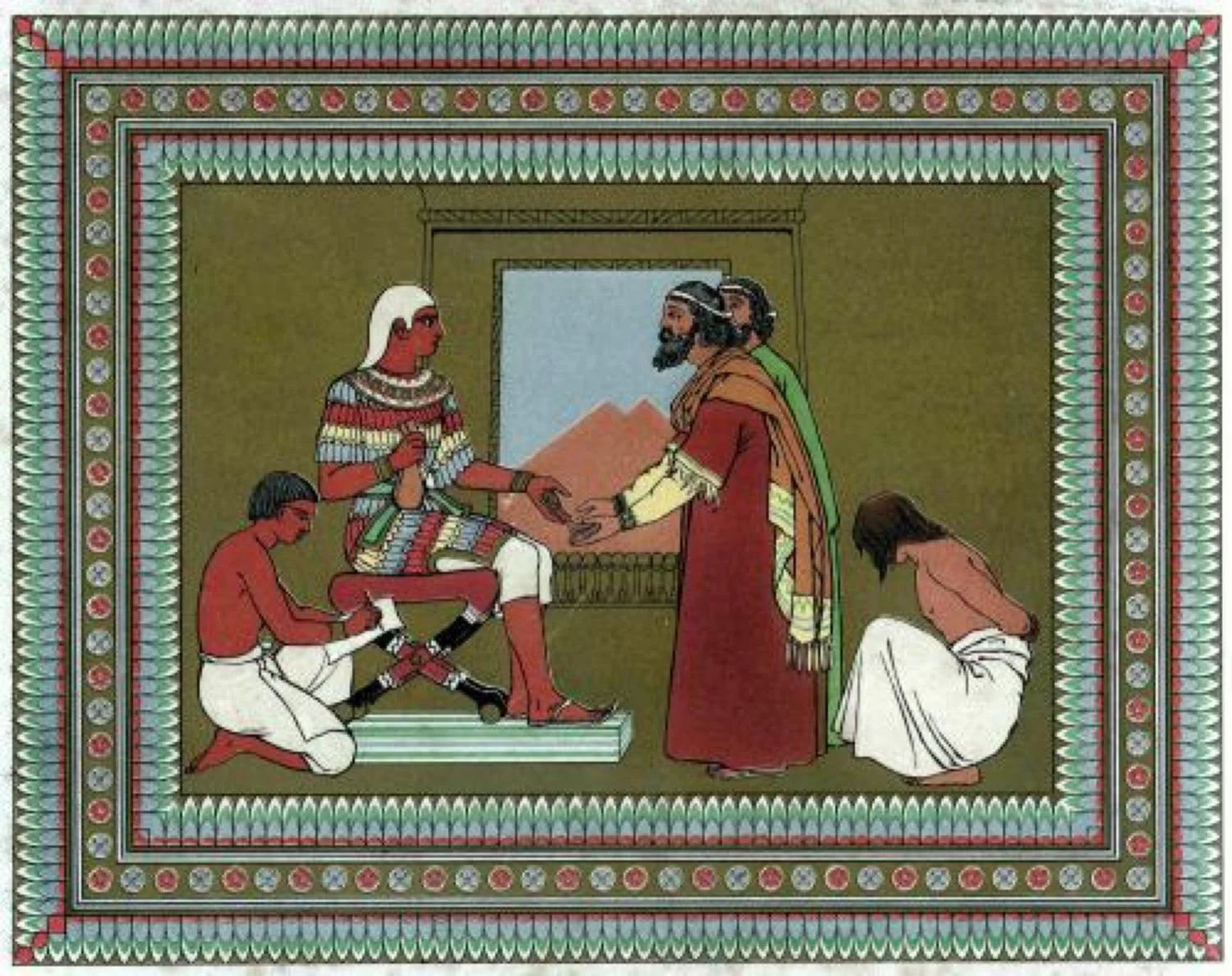Readings for today: Genesis 47-50
Father, Your Word literally reveals Your heart for Your people. It gives me wisdom and understanding into what it means to walk with You and before You. Teach me today how to think like You, speak like You, act like You, and ultimately, love like You.
Jacob is a broken man. When asked by Pharaoh to sum up the “days of his life”, he describes them as “few and evil.” He acknowledges he has not lived up to the standard of his fathers and forefathers. It seems clear he’s talking about more than longevity here. More than wealth. More than power. He has suffered. His losses have been grievous. The consequences for his sins have cost him dearly. He’s estranged from his twin brother. He defrauded his uncle. He’s buried both his wives. He thought he lost two of his sons. His oldest son shamed him deeply by sleeping with a member of his harem. Two of his other sons put his clan at great risk when they massacred a village. The famine he’s just survived has taken it’s toll. Now he stands before Pharaoh. He’s asked to sum up the years of his life. He’s asked to give an account of all that has happened to him. But rather than thank God for all that He has done for him, including restoring Joseph and Benjamin to his embrace, Jacob despairs. It’s terribly sad and heartbreaking.
Life for the faithful can be hard. Some of the difficulties we face are the result of our own actions or inactions. They are the consequences of our behavior, both the good and the bad. Some of the challenges we face are completely outside our control. Natural disasters. Crippling disease. Violence and war. There is a myth out there that those who truly believe will always experience blessing. They will be wealthy. They will be powerful and influential. Everything they touch will turn to gold. This is patently false. There is another myth out there that those who are faithful to God will never experience depression or deep sadness or despair. Again, this is patently false. The sufferings of this present life often take us to the end of ourselves and beyond. The sufferings of this world are often too much for us to bear. Despite what you may hear, God often gives us more than we could ever handle so that we will learn to rely on Him. I have seen this in my own life. I know many other saints who have experienced this as well.
Consider the example of Mother Theresa. A literal saint of a woman who dedicated her life to serving Christ among the poorest of the poor in Kolkata. She was revered for her work. She won the Nobel Prize. She was recognized and honored the world over for her sacrifice. But after her death, her private memoirs were published and it was revealed that she had experienced the absence of God for the last half-century of her life. She felt like she was wandering in spiritual darkness. She was deaf to God’s voice. Blind to His presence. She didn’t experience Him in worship or in the Eucharist or as she served Him alongside the broken. And it wasn’t because of her sin. She was experiencing what many Christians have experienced throughout history. It’s called the “dark night of the soul.” A terrifying walk through the valley of the shadow of death where everything is stripped from us, including the sense of God’s abiding presence. Does this mean God has abandoned us? Not at all. Did Mother’s Theresa’s experience mean that God had abandoned her? Not a chance. Just as God never left poor Jacob, He never leaves us. He is with us even when we cannot sense Him or see Him or feel His presence. Be encouraged by the words of the Psalmist, “Even though I walk through the valley of the shadow of death, I will not fear for Thou art with me.”
Readings for tomorrow: None
